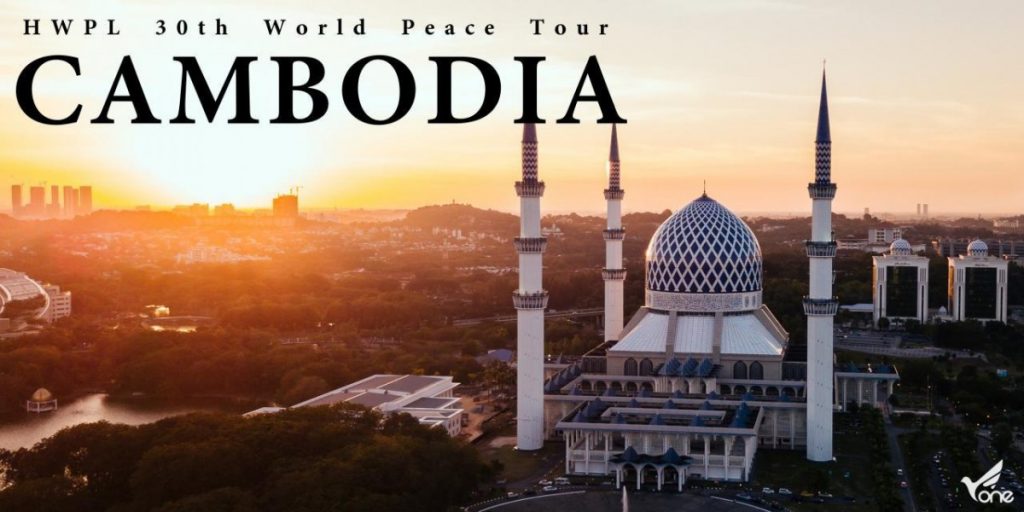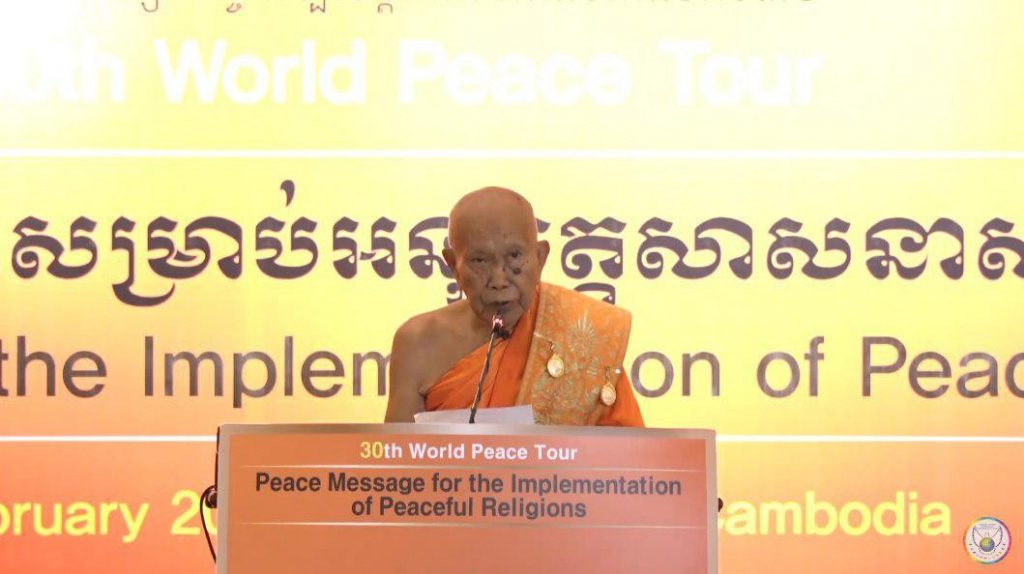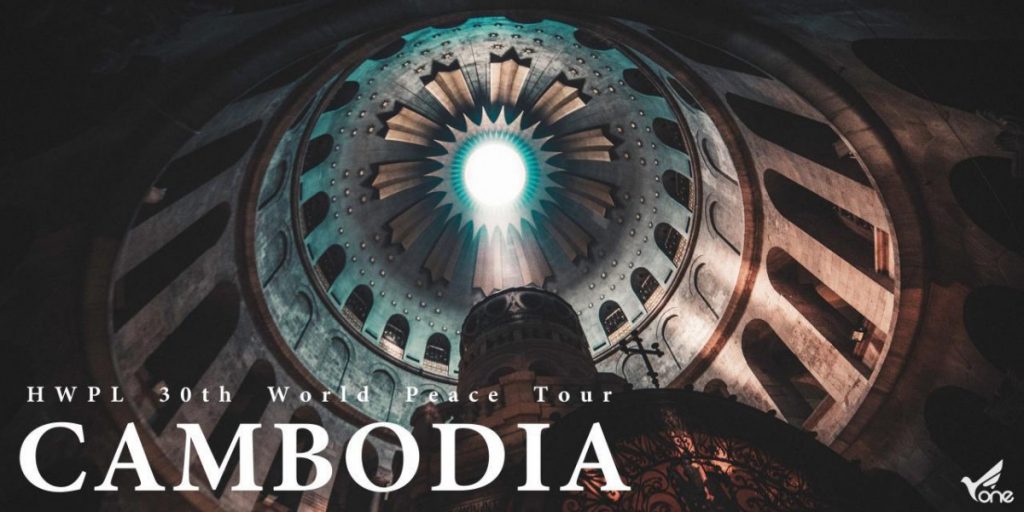
Over 1,000 social leaders gathered in Cambodia to discuss ways to make peace in Southeast Asia, according to HWPL 30th World Peace Tour. The ‘Peace Message for the Implementation of Peaceful Religions’ was held in Phnom Penh to develop peace-building measures for Cambodian Peace Process. The event also considered Southeast Asian efforts for decades to tackle violent extremism including terrorism and internal conflicts.
About 450 participants including religious leaders from Buddhism, Islam and Christianity in Cambodia, South Korea, Thailand, Vietnam, India and Singapore joined the forum. Cambodian supreme monk Tep Vong expressed his support to peace efforts saying that international cooperation as championed by HWPL could end wars and conflicts.

Now I’m writing the lower part of the following posting.
Cambodian Peace Process: 30th Peacetour
One social leader of Cambodia, “Religion should serve as an educator teaching good behaviour to all people in the world. However, some religions are threatening freedom of religion and human rights of religious people. Each religion must cease to do evil in the name of religion.”
Man hee Lee, the Chairman of HWPL, urged the forum to support his efforts to have UN resolution for DPCW saying: “Now we have the answer within the 10 articles and 38 clauses of the DPCW to achieve peace and end the war. There is no one who doesn’t want peace.”
Reference: http://www.nationmultimedia.com/detail/asean-plus/30364637
DPCW: Definite Answer to Peace
What was their joy when the war was over? The 1991 Paris Peace Agreements (Khmer: សន្ធិសញ្ញាសន្តិភាពទីក្រុងប៉ារីស) marked the official end of the Cambodian–Vietnamese War on October 23, 1991. The agreement was signed by nineteen countries. For more than twenty years, an estimated 1.7 million people lost their lives to violence and famine. For agreement, the United Nations would send a mission to Cambodia (UNTAC) until 1993. The purpose is to make “an environment in which respect for human rights shall be ensured.”
Professor Surya Subedi of Nepal emphasized that signing of the Agreements has brought “enormous dividends” to all Cambodians. This is really a huge one. Now they can grow and develop. This is because the culture of peace has been established.
Reference: https://www.ohchr.org/EN/NewsEvents/Pages/Cambodia-20yearsonfromtheParisPeace.aspx
What is the situation around the world?
War is still going on, and countless people are suffering. To them, death is too near, and precious people are easily lost. Who can handle their pain? Who can sympathize with their pain?
Writing this, I would like to ask the King of Cambodia, Prime Minister, President of the Senate, President of the National Assembly and all Cambodians to support the DPCW. Because you have already experienced peace! You know what the power of a piece of paper is. Haven’t you experienced a lot of the pain of war? If you really love peace, please support DPCW. Or come up with an new answer to peace. Stay still is because you want a war and are waiting for it.
Please try to help people all over the world experience a culture of peace. DPCW can change the world. There are two paths in front of us. “Peaceful Future” or “Endless War” Let’s leave peace as a legacy to future generations.
1.6 bn Youth and 3.7 bn Women support the DPCW!

Already, UN permanent representatives of 145 countries recognize the need for the DPCW. In 2017, the central american parliament passed a resolution in support of the DPCW. In Africa, HWPL and the Pan-African Parliament (PAP) signed MOU to support the DPCW. The PAP is the legislative body of the African Union consisting of 55 countries of the continent of Africa. This means the support of the entire continent of Africa.
Not at all, Seychelles, Eswatini, and Comoros expressed support for the DPCW at the NATIONAL LEVEL.
Now only your choice remains. What is your choice?
Reference: http://hwpl.kr/en/news
Peace love you DPCW
As the majority of wars are religiously-motivated, it is so important that religious leaders unite. Once they do, peace can come.